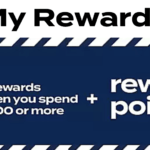Free Credit Freezes (and Unfreezes) Are on the Horizon
September 21, 2018, marks the date on which changes to the laws governing credit freezes and fraud alerts take effect.
It was S.2155, otherwise known as the Economic Growth, Regulatory Relief, and Consumer Protection Act, that was passed by the U.S. Senate and House earlier this year that included these changes.
The legislation was signed by the President on May 24, 2018, at which time its provisions became law.
You can view the bill in its entirety here.
As with most pieces of legislation, the provisions dealing with credit freezes and fraud alerts are but a small part of the overall bill.
However, for many consumers, these changes are extremely beneficial when it comes to managing one’s financial well-being.
Credit and Fraud Alert Changes
Free Credit Freezes
A credit freeze restricts access to your credit file, making it more difficult for identity thieves to open accounts in the names of others.
Currently, and in the past, those seeking to place a freeze on his or her credit were required to pay a fee for the privilege.
As a result of this legislation, there will no longer be a fee associated with freezing – or unfreezing – your credit.
You will be able to request a freeze online at a webpage set up by each of the big three credit reporting agencies, Equifax, Experian and TransUnion.
You should also be able to request your credit be unfrozen on the same webpage at any time.
It is anticipated that there will be no restriction on how often, or the number of times, an individual can request a freeze or unfreeze of his or her credit.
And each request, as a result of this legislation, will be free of charge.
Fraud Alerts
A fraud alert – to put it in simple terms – tells a business that runs your credit that they should check with you before opening a new account.
As the law stands now, fraud alerts, once they are set up, last only 90 days.
When the new law goes into effect later this month, an initial fraud alert will last for one year.
And will cost nothing to set up.
In a continuation of current law, identity theft victims will still be able to get an extended fraud alert that lasts for seven years.
Child Credit Freezes
Too often, identity thieves get hold of a child’s Social Security number – and other personal information – and use those details to open a number of fraudulent accounts.
It’s not until a child begins receiving delinquency notices that parents realize there’s a problem. At that point, it’s too late.
The legislation also allows for a free credit freeze for children under the age of 16 anywhere in the U.S.
Some state laws currently allow for the freezing of a child’s credit file…this legislation makes the ability to freeze a child’s credit uniform across all states.
Incapacitated or protected persons for whom a guardian or conservator has been appointed also fall under this provision (the term “protected consumer” covers all individuals in this category) and will be able to receive a free credit freeze, as well.
An Added Benefit for Active Duty Military
The legislation also requires credit reporting agencies to offer free electronic credit monitoring to all active duty military. This provision’s effective date is defined as “1 year after the date of enactment of this Act.”
Which means, it is unlikely this benefit will be available prior to early-mid 2019.
But, if you’re active duty military, or know someone who is, be sure to keep this in mind.
Wrap Up
Thanks to legislation passed at the federal level, consumers are now better able to manage their credit through freezes, unfreezes and fraud alerts.
And, unlike in the past, these credit management techniques will be absolutely free.
The Federal Trade Commission is the federal entity overseeing these changes, and September 21, 2018, is the date that has been set for these changes to go into effect.
The FTC has noted that its website – IdentityTheft.gov – will have links to the webpages where credit freezes, unfreezes and fraud alerts can be set up once everything becomes effective.
To err on the side of caution, it might be worthwhile to begin the process of freezing and establishing fraud alerts at the Federal Trade Commission’s website to ensure nefarious, copycat sites are avoided. I would not put it past those seeking to steal identities to set up similarly addressed/looking websites early on in an effort to gather valuable consumer information before they can be shut down.


:max_bytes(150000):strip_icc()/SoftCreditCheckvs.HardCreditCheckWhatstheDifference-c3201093c8804d34895c0447ac06ad22.jpg?w=150&resize=150,150&ssl=1)

